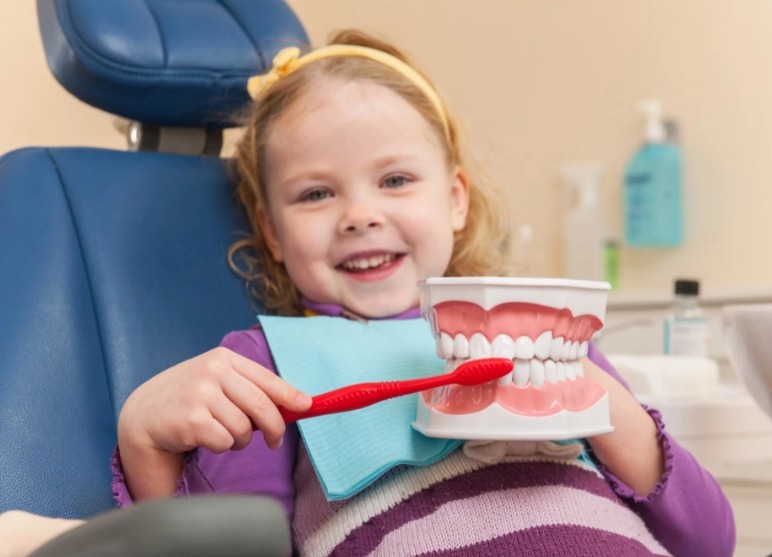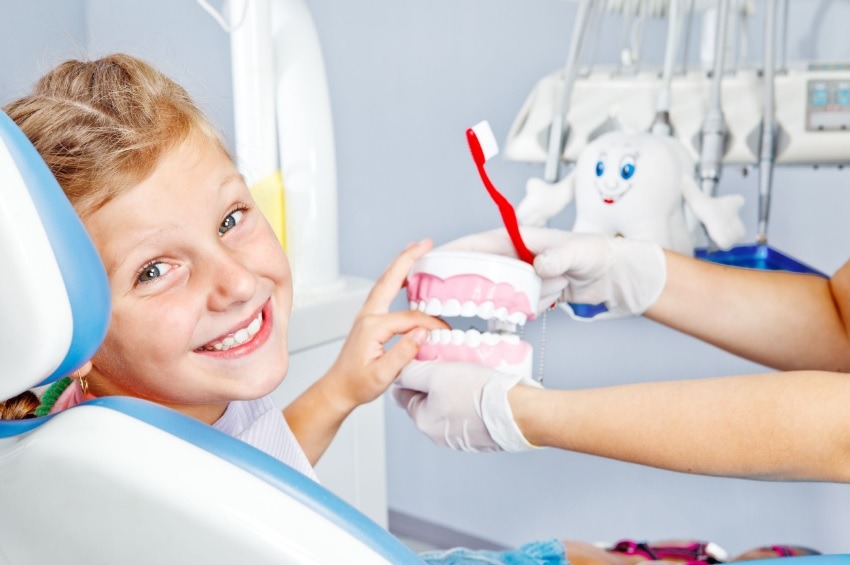Children’s Dentist Near Me
When should my child see the dentist?
It is recommended to schedule your child’s first dental visit when the first tooth becomes visible. If you noticed anything that appears out of the ordinary, it is always better to be proactive and have it checked. Dentistry isn’t just about the teeth, but it involves the rest of the mouth as well.
Bringing a child in to see the pediatric dentist is also a great opportunity to get some advice on healthy habits to get your child into to look after their teeth.

- Baby bottle decay
- Teeth cleaning
- Teething
- Finger sucking and/or pacifier habits
The earlier your child visits the dentist the better, it provides an opportunity for children to become familiar with staff and processes at the dental practice. Also, prevention is better than cure, so early dental visits let us protect your child from tooth decay and dental problems.
Do I have to look after baby teeth if they are going to fall out?
Yes, baby teeth will eventually fall out and by the age of 12 to 13 your child will most likely have had lost all their baby teeth. However, baby teeth (deciduous teeth or milk teeth or primary teeth) play a very important role for the wellbeing of your child.
-
Teeth provide function for eating and chewing – children may have a loss of appetite if they lose their ability to eat and chew due to lack of teeth or pain from dental decay. So it is important to maintain children teeth to allow them to eat and grow.
-
Alignment and position – baby teeth (primary teeth) save space for the adult teeth, and they will help guide the adult teeth into position. Early loss of baby teeth can result in arch collapse, adjacent teeth can move together and close space, potentially blocking the adult tooth when it is ready to erupt.
-
Speech and facial development – the position of upper front teeth assist children in the pronunciation of words and sounds. The structure also provides support to the developing facial muscles of the jaw and face that provide give facial shape
-
Self Esteem – pain may hinder their concentration during school or activities, disturbed sleep or interfere there social interactions with their friends.
-
Sometimes baby teeth are not replaced if your child does not have a permanent tooth to replace it.
Tips to make your child’s visit a positive experience
-
Take your child with you when you have you dental check-up so they will see what occurs
-
Be positive about dental visits and highlight the fun aspect of visiting the Dentist
-
Integrate dental visits as part of your routine
-
Dental appointments early in the day can help, so children are not tired / restless
-
Arriving earlier to your appointment can help your child become familiar with the new unknown surrounding
Tips not to do for your child’s dental visit
-
Don’t bribe your child
-
Don’t tell your child it will hurt (or it will)
-
Refrain from using the dentist as a threat of punishment
-
Try to not be anxious, children are excellent at reading body language. So if they know you’re anxious they might be too
-
It is not required to tell your child they are brave (they are already are)
-
Health professionals want to make your child’s visit a fun and enjoyable experience for yourself and your child


